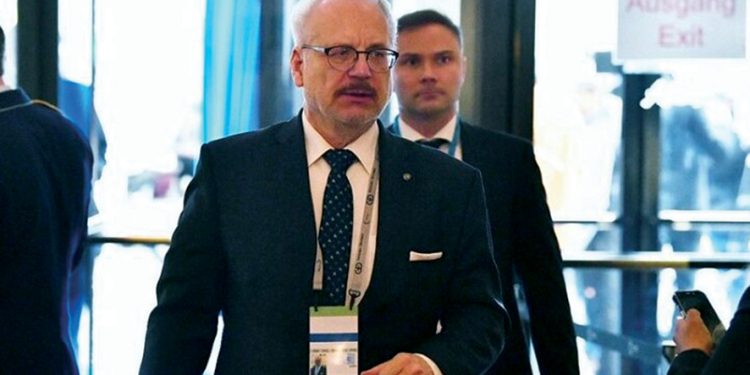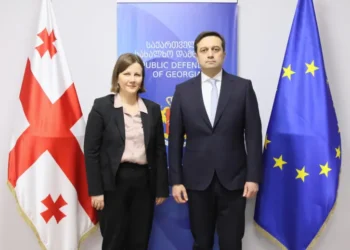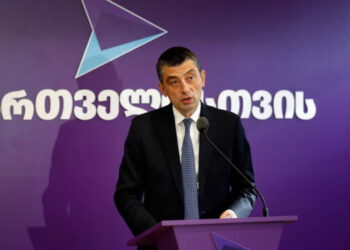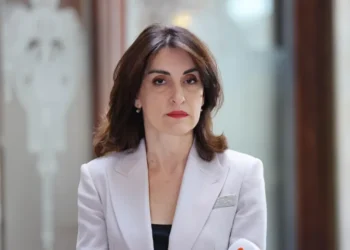President of Latvia Egils Levits is the first western leader to have spent a night in Kyiv since the war began. As a former judge at the European Court of Human Rights, he is calling for the establishment of a special tribunal on Russia’s aggression against Ukraine, to punish Russia for its war crimes. Radio Free Europe’s Georgian Service sat down with him in Munich to discuss that call, the West’s early naivety, and the Georgian government’s mixed messages.
“We should not wait until Russia is defeated or Putin is thrown from his position,” he tells us. “Not all criminals are present in persona at tribunals. For example, in Yugoslavia, some were tried in absentia – the same can be done with Putin. The most important thing is not that the person is sitting in on the trial as such, but that we are able to dig more into this machinery of war, of aggression; to openly question how such a war is possible, and to open this to the public by judicial means. In other cases, too, in Rwanda, Sierra Leone and Liberia, the criminals were not necessarily sitting in on their trials, but it is an important process to show society that such behavior is unacceptable. And I think this principle is more important than having everyone on the bench.”
This war has given you and your Baltic neighbors ample reason to tell the rest of the West: “We told you so” for what you say was “an enormous mistake and naivety of moving purposefully towards dependence on Russia, despite our warnings”. How did this naivety come about?
This naivety was born because, after the Cold War, the West was not paying enough attention to the internal processes in Russia. Had they looked more closely at what happened to Russia and better analyzed it, then, of course, they would have discovered that it was an illusion that they had; the dream of having a democratic Russia. And I think this is the reason. It was negligence, I would say.
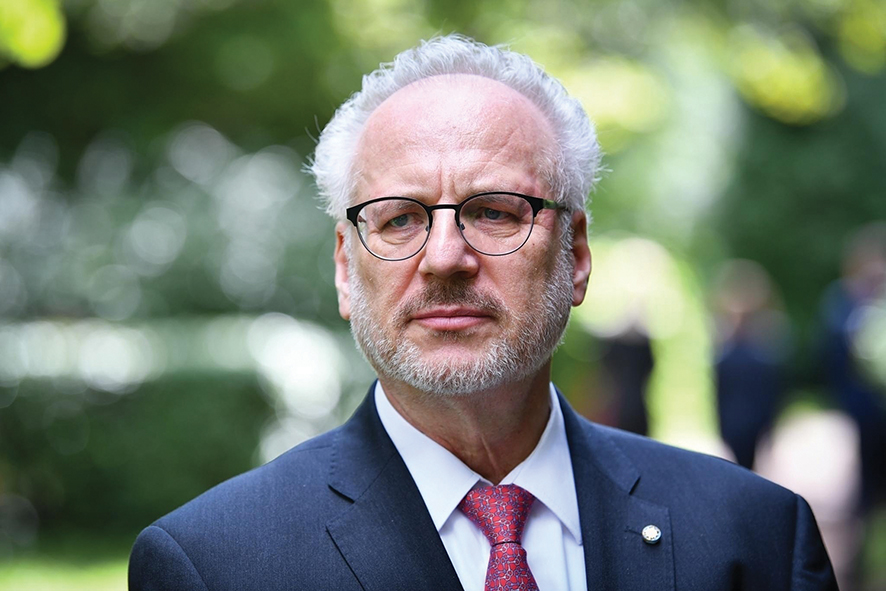
And why did they not listen to your warnings?
We were warning them, but, of course, it wasn’t a comfortable message to hear. The dream was more comfortable than recognizing the bitter reality.
One such warning could perhaps have been the war in Georgia in 2008.
For a member state of the European Union national interests should be aligned with the common interests
Of course, the Russian aggression started in 2008 in Georgia, and the Baltic states reacted immediately. Our presidents went to Tbilisi because we knew what it means when Russia attacks a country. But the reaction from the rest of Europe was relatively weak, and this led Russians to conclude that the entire West is weak, led to them believing they could go further. The next step was Crimea in 2014. And then, of course, consequently, from the Russian point of view, 2022 – a full scale attack on Ukraine. We must draw the right conclusions, and now it seems the West really has understood what the Russian character is all about, and what Russia is, and they have developed a strategy to deal with it.
Another cause you are championing is to freeze Russian assets and give them to Ukraine, to rebuild the country after the war. You have said it’s difficult, but doable. If the West really has woken up, why hasn’t this freeze happened yet?
The development of political will on [opposing] Russia is a continuous process. If we see how the West now sees Russia today, and compare it to one year ago or maybe half a year ago, then there is development, and this development is in one direction. There is a growing will to [freeze those assets]. We haven’t reached that point yet. But before that point come discussions and dynamics, and that is where we are at right now.
We’ve both heard President Zelensky say that Ukraine “must be in NATO, must be in the EU.” You share that sentiment. My question is – When?
On the European Union membership, I can’t say when, but I can say that there is serious will from all member states that it should be as soon as possible. I don’t think it will take very long, but not in the next few years.
What about NATO? I think we can conclude that Ukraine now has one of the best armies in the world.
I think that discussion will be renewed after the war. I really see Ukraine as a member state of NATO, because, as you rightly said, it will be one of the best armies in the world and a real contribution to the Alliance.
Moldova and Georgia also have aspirations to be in the European Union, and one of them at least has aspirations for NATO. How do you see their European futures?
Moldova is now under pressure from Russia, but I’d say the government there is willing to take all the necessary steps [toward the EU]. Moldova has a big supporter in Romania, and Romania is very much helping Moldova. I expect Moldova could be ready for the EU at more or less the same time as Ukraine. Georgia has not yet received candidate country status. My advice would be to start the reforms now, because it’s clear what needs to be done.
Do you see the government in Georgia, like that of Moldova, willing to take the necessary steps and dedicate itself to reforms?
I would only say that, according to the statements of the government, the government is willing [to do so].
You were an Ambassador to Hungary. When asked whose side he was on in this war, Orban replied “on the side of Hungary.” Later, this was echoed in Georgia, where our leadership said they were “on Georgia’s side.” What do you think such statements mean?
[Chuckles] I’m looking for a diplomatic answer. It is up to Hungary to define its interests, but it is a member state of NATO, a member state of the European Union, and national interests should be aligned with the common interests.
You don’t say “I am on the side of Latvia in this war,” because it’s obvious that being on Ukraine’s side means being on Latvia’s side as well. Why is this different?
The motivation is to be somehow neutral, but neutrality is impossible in this case, because we have a case where there is a clear aggressor and a clear victim. Neutrality in such a case means being on the side of the aggressor.
Interview by Vazha Tavberidze for RFE/RL

